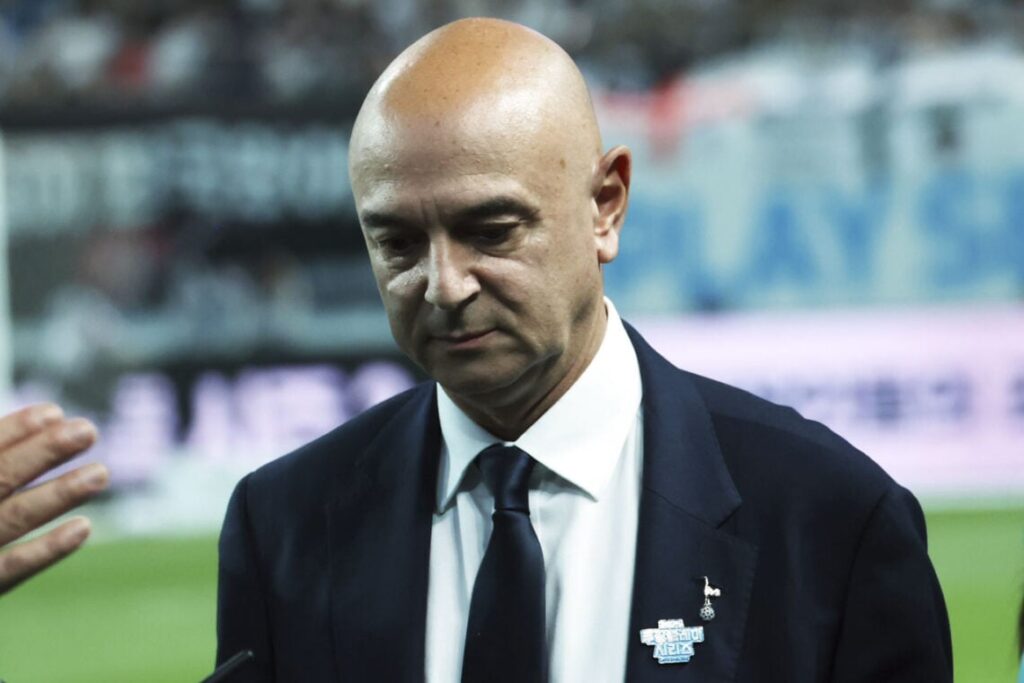Former Tottenham Hotspur chairman Daniel Levy has made some interesting revelations about the club’s financial expectations and their recent struggles.
Speaking on the No Tippy Tappy Football podcast, the 80-year-old shared that during his time on the board, Tottenham always set their budget with the goal of finishing eighth or higher in the Premier League.
He explained that dropping below that position would have significant financial consequences. According to him, every place lower in the table could cost a club around £20 million, which shows just how vital a strong league finish is for maintaining financial stability.
He admitted that while the club managed to recover some of the losses through winning the Europa League, the damage from their poor league finish still had a big impact on their finances.
Levy had previously defended his controversial decision to part ways with Ange Postecoglou earlier in the season, telling The Overlap in August that it was “impossible” for Tottenham to finish as low as 17th in the table.

While his choice of words raised a few eyebrows, what he likely meant was that a club of Tottenham’s stature could not sustain itself financially if it performed that poorly in the league.
That’s the harsh reality of modern football finishing positions aren’t just about pride or prestige; they are tied directly to a club’s economic future. The league remains the lifeblood of every top club, especially now that financial regulations are tighter than ever.
Amid these financial and managerial challenges, another major talking point for Spurs this season has been the performance of Joao Palhinha.
The Portuguese midfielder joined Tottenham on loan from Bayern Munich in the summer, and while he has brought defensive solidity to the team, his signing has sparked debate among fans and pundits alike.
Jamie Carragher recently weighed in on Palhinha’s impact and shared why no other top Premier League club pursued him before Tottenham made their move.
Carragher, speaking on Monday Night Football, highlighted Palhinha’s defensive strength, pointing out that he leads almost every other midfielder in tackles.
However, the Liverpool legend also emphasized that Palhinha, along with Rodrigo Bentancur, rarely makes forward or line-breaking passes a key reason why Spurs have struggled to create scoring opportunities consistently.
Carragher explained that this weakness in possession is likely why Bayern Munich didn’t use him much last season and why Premier League clubs were hesitant to sign him directly from Fulham.
He said that while Palhinha is a powerful ball-winner, he doesn’t possess the passing range or creativity to progress play effectively through midfield.
Despite that criticism, Carragher also acknowledged in The Telegraph that Palhinha might still be Tottenham’s best signing of the summer. He described him as “exactly what Spurs needed,” crediting the 30-year-old for adding steel and composure in midfield.
According to Carragher, the pairing of Palhinha and Bentancur, though conservative, has helped make Spurs more difficult to break down. However, he also warned that there must eventually be an evolution in the team’s approach if Tottenham wants to play more attacking, fluid football.
The main concern among fans right now is that while Palhinha and Bentancur form a strong defensive unit, they don’t offer enough going forward.
Many supporters have been calling for Thomas Frank to include the more dynamic Pape Matar Sarr in the lineup to add pace and creativity. Frank, however, has stood by his current midfield setup, believing that the balance between defense and control is essential for stability.
The problem is that Tottenham’s creativity has taken a massive hit due to injuries to James Maddison and Dejan Kulusevski, while Xavi Simons has yet to adapt fully to the Premier League’s intensity.
This has left Mohammed Kudus carrying much of the creative burden on his own. With limited attacking spark from midfield, Spurs often look predictable going forward.
For Tottenham to truly compete with the league’s elite, they will need to find a way to blend Palhinha’s defensive strength with more progressive and inventive play in midfield.
Until then, the team risks becoming too cautious and one-dimensional. The current situation is a reminder that balance is key financial planning, squad building, and tactical execution all have to align perfectly for a club like Spurs to thrive. Right now, they seem to be searching for that balance both on and off the pitch.

